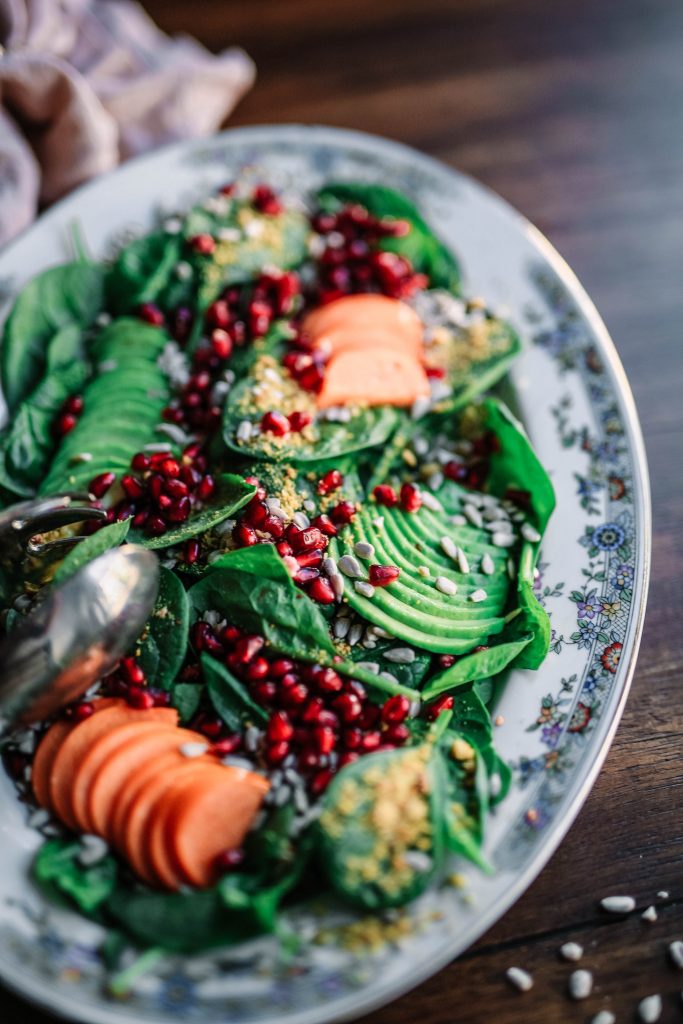You’ve almost certainly heard of the benefits of the 5:2 intermittent fasting plan, where you eat freely for five days a week and restrict your calorie intake to five hundred or less for the remaining two days. Studies have widely shown the practice to reduce cholesterol, improve cardiovascular health, improve brain health, reverse type 2 diabetes, improve the rate of cellular repair, and reduce inflammation. There’s even promising research suggesting that it may reduce the risk of cancer.
That’s all fantastic news and the 5:2 plan has greatly improved a lot of people’s health. However, it’s not for everyone – if you travel a lot for a living as I do, you just don’t have as much control over your food as someone who’s at home every night, and so it can make getting the right nutrition on the 500 calorie days tricky. It’s also a bit of a bugger if you’re prone to getting hangry (ummm yep that would be me), and if you have any history of eating disorders (also me) then it can be shaky ground even if you’re fully recovered. When I tried it, my experience was that having carte blanche to eat whatever I liked on the ‘5’ days tended to encourage eating the kind of unhealthy stuff that I wouldn’t normally go near, just because I ‘could’.
However, the benefits of fasting are so significant that they were something I was keen to have in my life. So when I heard about the 16:8 intermittent fast, I decided to give it a try. Six months on I feel great and I haven’t looked back.
The principle is very simple – you just eat all of your daily food in an eight hour window and don’t eat for the other sixteen; and as you’re asleep for half of that anyway, it’s no great hardship. Everyone’s schedule differs, but for me the best plan is to break my fast at midday, and finish eating by 8pm.
Sometimes even that isn’t practical – when I’m on the road I don’t finish work until late in the evening. I’m almost invariably hungry by the time we’ve done the show and loaded all the gear out, and personally I don’t sleep well with a growling belly. So on those days I might tweak things so that I eat my first food around 2pm to allow for a post load-out snack. Sometimes it means the fast time gets cut to 14 or 15 hours, but even that gives my body a decent break from digesting food and allows it to divert energy to the other vital regenerative processes that need to happen.
It’s working incredibly well for me. Here are the unexpected benefits that I’m experiencing from eating this way….
I’ve become more resilient
In the West we are very used to having our every discomfort attended to immediately. Hot? Turn on the AC. Cold? Whack up the heating. Hot and cold food and beverages are available to us everywhere we turn, our favourite music and shows are on tap, and we never have to be bored because of the smartphones we all carry everywhere. Hunger is not something a lot of us experience beyond the very faintest pang right before another mealtime, and all of this comfort has made us soft. I think it’s really good for us to remember what hungry actually feels like (whilst acknowledging that it’s still absolutely nothing compared with the real, starving hunger that millions face every day). Getting hungry and not immediately ameliorating my mild discomfort has made me more resilient to safe levels of discomfort in general, and made me appreciate how lucky I am to know where my next meal is coming from. It’s made me see things from a place of abundance – I know there will be food, even if it’s not just yet – rather than lack. And it’s changed my vocabulary – I no longer say ‘I’m starving’, because I’m not. I’m just hungry and excited about my lunch.
I’m inspired to pack the maximum nutrition into every mouthful
Whilst the 5:2 made me want to pig out on the non-fast days just because I could, the 16:8 inspires me to eat as well as I possibly can. My game is to see how many nutrients I can get into a meal, and you’d better believe I’m getting five veg and two fruit a day in there, minimum! For me – and this is just my personal choice – there’s no space for ‘bulk’ foods like bread, rice and pasta, which may offer energy but comparatively little other nutrition.
My weight takes care of itself
Because I’m not eating at all hours and I’m inspired to eat really well, maintaining a healthy weight requires no effort.
I get an extra half an hour a day
I’m not a quick eater, and eating a meal generally takes a minimum of twenty minutes. With prep time, that’s at least half an hour per meal, so now that I eat two main meals rather than three, I get half an hour back in the morning.
And food tastes better!
Now that I actually get a decent appetite going, when I do break my fast and sit down to a meal, oh boy does it taste good!
I’m now very accustomed to my daily 16 hour fast, and it feels perfectly natural. It did take a bit of getting used to for the first couple of weeks, but once these unexpected benefits started to reveal themselves, on top of the good that the medical research suggests that I’m doing for my body, it became a very easy habit to stick to. I’m not a nutritionist and if you’re planning to radically change your health habits in any area then you might want to seek professional advice, but it works for me; maybe it will give you food for thought too.
Photo credit: Edgar Castejon
